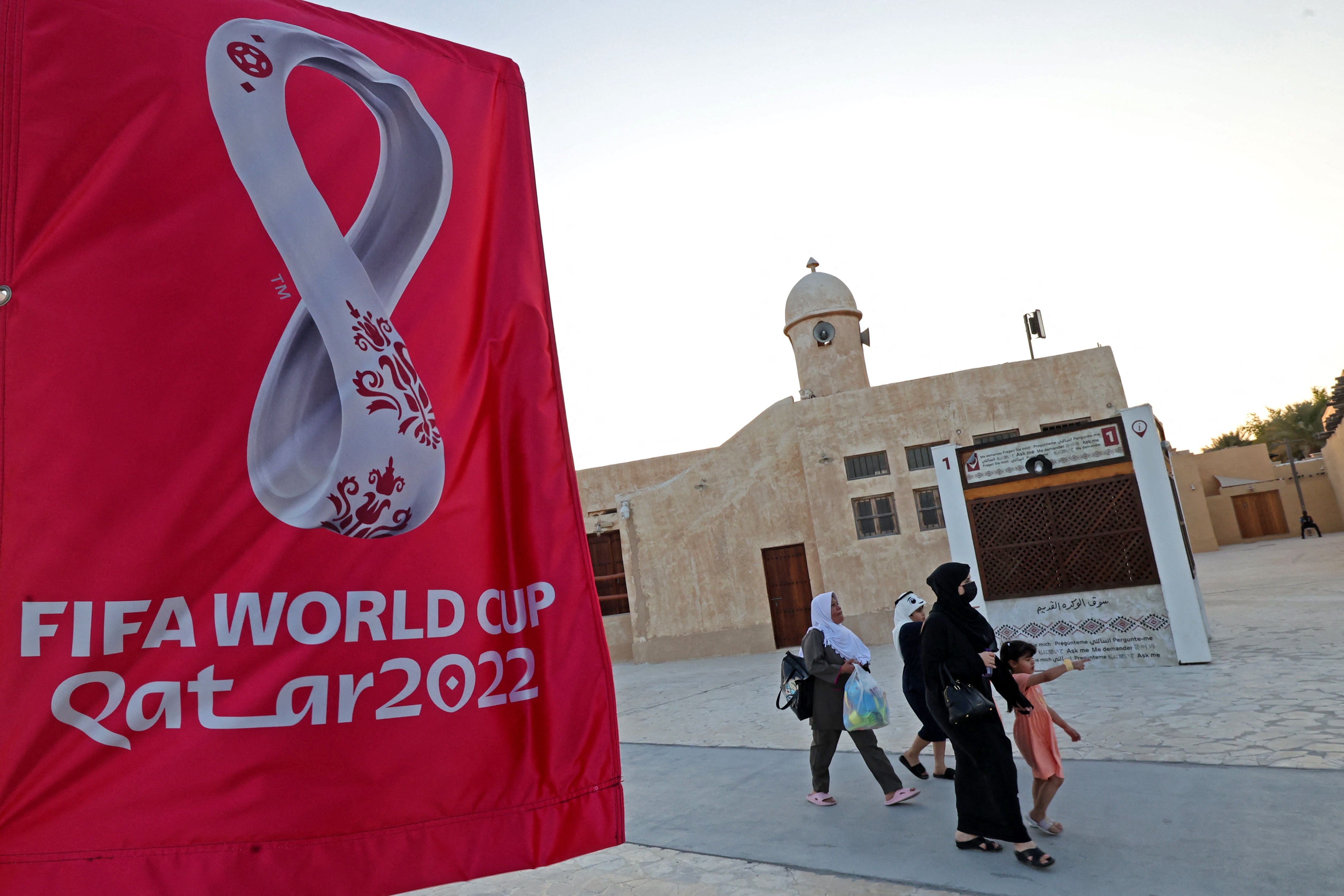Big sporting events deserve to be seen by as many people as possible
The ability of sport to force a degree of social change should not be underestimated, but it has to go hand in hand with broader reforms, writes Chris Blackhurst


In a bar the other evening, a friend expressed his excitement at the forthcoming Fifa World Cup.
For a moment it brought everyone up short. Then we all joined in, discussing teams and players, and predicting the winner.
It’s as if we’ve become so used to focusing on damaging stories concerning the hosting of the tournament by Qatar that it’s easy to forget a sporting competition, the world’s biggest, is about to begin.
There is a sense with this World Cup of a loss of total perspective. After all, the last World Cup was staged in Russia; and this is an event that in the past has seen participation from the likes of China and North Korea. Beijing has held two recent summer and winter Olympic Games. Somehow, with Qatar, it seems worse.
Exploiting migrant workers is a problem across the world. You would think, though, it’s an issue only confined to Qatar. Mexico has already hosted the World Cup twice and will do so a record third time when it joins with the USA and Canada to lay on the 2026 championship. Does Mexico enjoy an impeccable track record where treatment of labourers is concerned? Do other host nations? No, they do not.
There is a feeling, too, that the hostility extends to its neighbours, not stopping at Qatar. As Crystal Ennis, lecturer and scholar in global political economy at the University of Leiden, says: “Exceptionalising Qatar allows observers to dismiss abuse as something inherent in Middle Eastern societies or cultures.”
The fact that Qatar is a small country, relatively unknown internationally, does not help. Marc Owen Jones, associate professor of Middle East Studies at Hamad Bin Khalifa University in Qatar, maintains there is a sneery attitude towards major sporting events such as the World Cup when they are held in developing nations. The South Africa World Cup in 2010 attracted critical coverage in the British press, so much so that the South African government blamed it for a shortfall in the expected visitor numbers. Likewise, the 1996 cricket World Cup in India came in for similar treatment.
Inject Muslims and Arabs into the mix and the conditions exist for what some commentators regard as “fair game”.
Put the dissension to one side and what are you left with? A media phenomenon that will put Qatar on the map and introduce the tiny Gulf state to a worldwide audience.
This is the business benefit to be gained from holding the World Cup – in this instance, it’s about a country punching above its weight, proving it is capable of creating a spectacular show. Qatar’s ambition is not to be knocked – in the UK, a city that did not even rank second behind London once wanted to join the list of venues for the Olympic Games. Manchester was duly mocked but it had placed itself above the pack and continued to dream and to develop, to the extent that in the eyes of many it can lay claim to being Britain’s “Second City”, ahead of the actual incumbent, Birmingham.
Is it likely that Qatar, once the final whistle of the last match is blown, will revert to how it was? Or will it savour the experience of being so prominent on the world stage and wish for more?
Qatar is doing the same, determinedly signifying that in an increasingly competitive global marketplace it wants to belong. There will be plenty of other governments and their publicists, economists and inward investment officials looking on with envy as this World Cup unfolds and one nation is dominating TV airtime. Afterwards, Qatar will require little or no introduction again – that’s a leap up the international marketing recognition rankings that only something of this magnitude can bring.
The ability of sport at this level to force a degree of change should not be underestimated either. In no time at all, Qatar will have gone from being a place where many migrant workers suffered poor health and safety standards and living accommodation to one where at the very least, employers cannot claim to not be properly informed and educated. The presence of overseas NGO monitors can only be a positive move.
It’s easy and tempting to lash out and accuse. What’s more difficult is to take a sober view and to try and understand where their society was and how far it had to travel to consider even bidding for the World Cup and how far it may still go.
Is it likely that Qatar, once the final whistle of the last match is blown, will revert to how it was? Or will it savour the experience of being so prominent on the world stage and wish for more, altering its ways accordingly?
The same applies to the region. Not only does the Arab world adore football but it wants to be a big player and it’s got the financial wherewithal to enable it to do so – provided it is prepared to adapt and implement social reform. The effect of the World Cup taking place in a local country, in an area that has never enjoyed this privilege before, not experienced at first hand the breathless excitement and razzmatazz, cannot be underestimated.
The World Cup is not the preserve of a Western, predominantly European elite, despite what some might imply.




Join our commenting forum
Join thought-provoking conversations, follow other Independent readers and see their replies
Comments